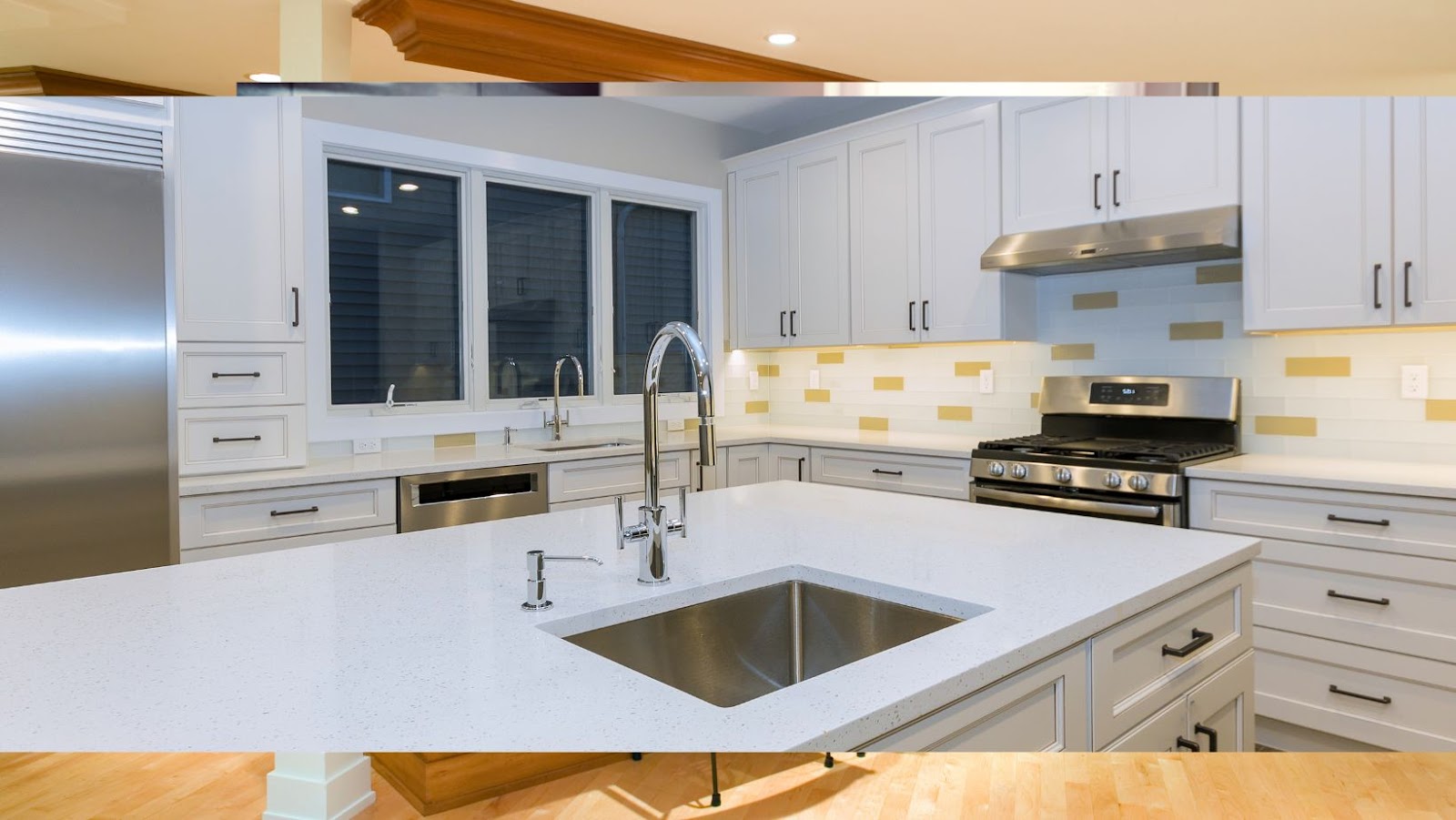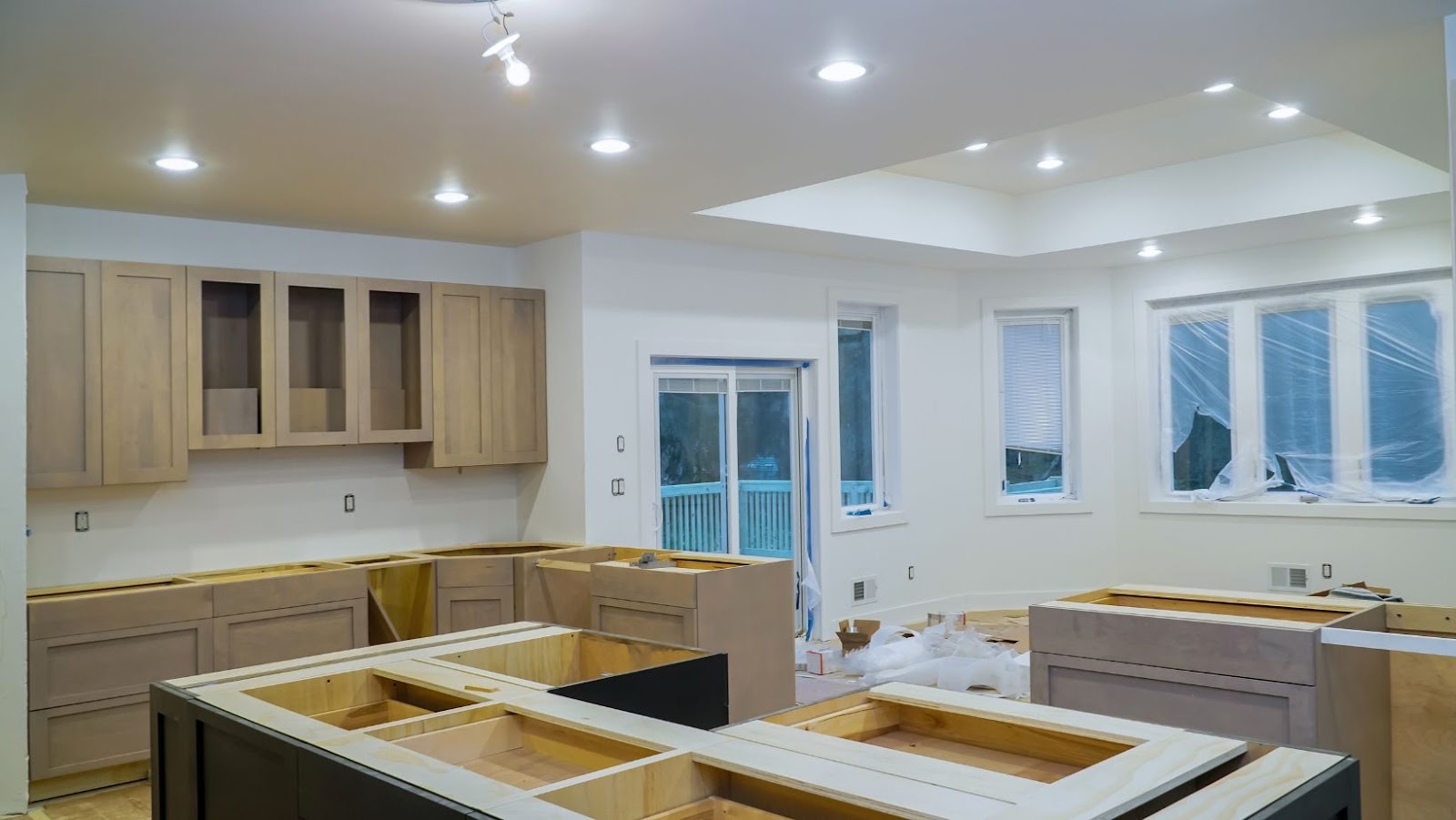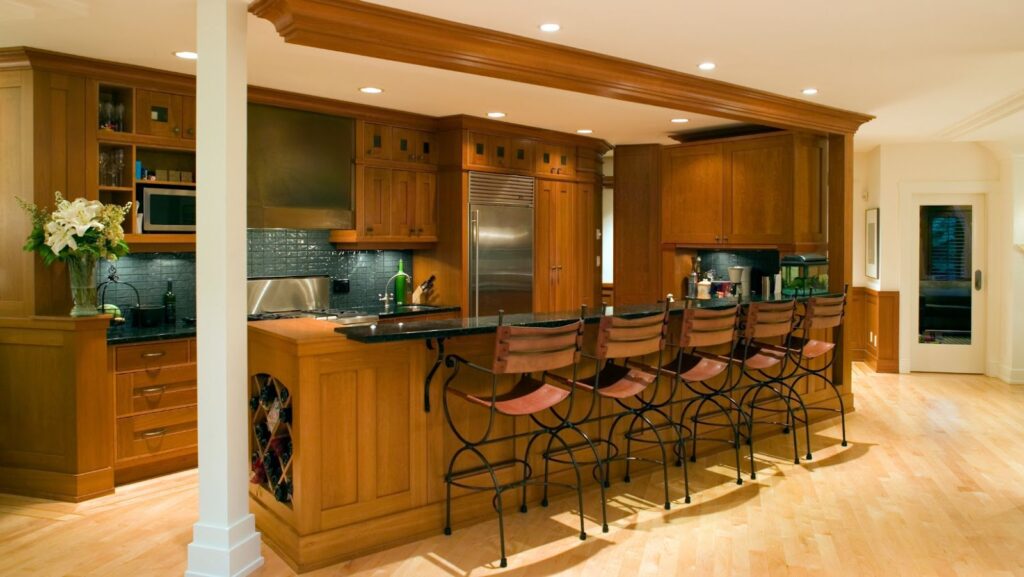Are you planning to renovate your kitchen, but are not sure how much money you need to budget for? While it can be difficult to estimate the exact amount of money that you should put aside for your kitchen renovation, there are some general guidelines to follow.
In this guide, we will explain why it is necessary to plan a budget before taking any steps and what factors should be taken into account when setting up a budget for a kitchen renovation. By considering these factors and preparing in advance, you can ensure that you have enough funds available for the job without overspending or running out of money midway through the project.
Factors to consider when setting up a budget for a kitchen renovation include:
- Cost of materials
- Cost of labor
- Duration of the project
- Contingency budget
How much extra should i budget for kitchen renovation
Renovating a kitchen is a great way to give your home a fresh new look, enhance the value of your property, and make cooking and entertaining more enjoyable. Kitchen renovations are one of the most popular renovation projects because they provide plenty of bang for the buck. Here are some benefits to consider when budgeting for a kitchen renovation:
- Improved Efficiency: An updated kitchen with modern appliances and fixtures can improve kitchen function and efficiency in many ways. For example, smart cooktops with integrated sensors can ensure food is cooked properly every time; cabinet organizers help you store cookware and food neatly; modern lighting options add illumination to working spaces; and thoughtful storage solutions keep countertops clutter-free.
- Enhanced Ambience: A stylishly-designed kitchen adds beauty and ambience to any home. All the materials – from countertops, sinks, cabinets to flooring – should be selected carefully to create an inviting setting that’s inviting for both family members and guests alike. Select textures that complement each other as well as provide an ergonomic working environment – choose wood floors with granite countertops or natural stone tiles on walls for a timeless look that will serve you well in the long run.
- More Space: Kitchen renovations can make it possible to add additional work surfaces or storage items without taking up extra space or disrupting existing layout. These storage solutions can also maximize existing space by replacing existing cabinetry with larger models that offer more storage options than before; adding shelves along walls; installing shelves above windows or between counters; even installing spacious island units in lieu of bulky cabinets can increase workspace significantly – all without taking up extra room!
- Additional Features: While renovating your kitchen, you may opt to include features such as built-in microwaves or other features built into cabinetry, spacers for utensils and seasonings, triangle shaped corner drawers for pots & pans, appliance garages built into cabinetry for small appliances, etc., all of which offer additional convenience while cooking as well as improved aesthetic appeal when entertaining guests.
- Increased Resale Value: A major benefit of renovating kitchens is increased resale value of homes should you ever decide to sell it down the line – something which should always be kept in mind when budgeting to remodel this ‘hub’ area!
Budget Considerations
Renovating your kitchen can be a great way to spruce up your home and give it a fresh look. But it is also an expensive undertaking, and you need to plan your budget accordingly. Kitchen renovations can often cost more than the estimated budget due to unexpected costs, so it is important to budget for a kitchen renovation with extra cushion.
Let’s analyze some of the key budget considerations when planning a kitchen renovation:
Materials
When planning to renovate the kitchen, one of the first steps is to establish the cost of materials. There are several considerations to consider such as cabinetry, flooring, countertops, lighting and appliances.
For cabinets, you may choose ready-to-assemble (RTA) or prefabricated options. Depending on your budget, you may opt for stock cabinets that come in a variety of colors and styles or custom options which will cost more but allow you to select truly unique materials.
Flooring can range from affordable laminates to higher end ceramic tiles or natural stone slabs. When considering a type of flooring product you will also need to factor in its durability and resistance to scratches and stains.
Countertops may be constructed from natural stone or synthetic material such as durable quartz surfaces or other solid surface products like Corian®. It’s important compare a range of options for quality and price before deciding on any particular option.
Lighting can also be an important part of kitchen remodeling projects since most cooking activities require adequate illumination both above the work space but also beneath surfaces such as cabinets and islands. Consider energy efficient LED lighting solutions that come in various forms like recessed lights, pendants, under cabinet lights as well as motion sensors within closets and drawers can help decrease energy costs further over time.
Finally, when purchasing new appliances it is essential to consider their energy efficiency ratings prior to making a purchase decision since these items are known for draining electricity consumptions costs over time unless carefully selected with this consideration in mind at the point of acquisition.

Labor
Labor is one of the most important considerations when budgeting for a kitchen renovation. It is always best to hire a qualified contractor who specializes in kitchen remodeling to ensure that the job is done properly. This will also help you to avoid costly mistakes or rework later on.
A good contractor will be able to provide you with an accurate estimate of labor costs up front and should include details such as the cost of subcontractors, trim work, tear out, drywall and tile work. Be sure that your contractor has experience in kitchen renovations and is highly recommended by people whose opinion you trust.
You may decide to do some of the demolition or painting yourself if you have the skill set and it can save on costs but it is often better in the long run to allow your professional team do their jobs properly and speedily so that you can return to use your kitchen as soon as possible.
Appliances
When budgeting for a kitchen renovation, it is essential to consider the cost of appliances. While there are many different appliance types, styles and prices points to choose from, features remain the main factor when choosing an appliance for your kitchen.
First, consider how much counter space is available in your kitchen and a refrigerator should typically take up around 30” of width. Additionally, identify what type of refrigerator is ideal for your home based on space, whether this be slim depth or standard depth. If a full-size dishwasher is preferred, pricing may depend on how many place settings it can hold at one time and whether or not you wish to incorporate adjustable racks or special cycles customized for each load.
For electric ranges and ovens, the most common widths are 30” and 36” with cooktops mounting directly onto them. Do you prefer electric coils or ceramic? Gas ranges usually consist of a four burner cooktop mounted onto an oven unit ranging between 24″ to 25″ in size. If a microwave isn’t included in your range installation plan than measurements should be taken prior to purchasing one separately as under cabinet microwaves have specific capacity dimensions whilst over-the-range models require additional considerations such as exhaust fan function or venting capabilities.
Budgeting sufficiently for appliances will lead to an increase in long-term value of your kitchen while ensuring functionality remains intact throughout the years by choosing reliable products from trusted brands. By being aware of available options that best fit your lifestyle needs and budget restrictions it’ll allow you to make more informed decisions when it comes time to start planning every aspect necessary for a successful kitchen renovation project.
Installation
Installation is one of the most important elements of a kitchen renovation, but it can also make up the largest portion of your budget. Before tackling a kitchen remodel project, consider what type of installation processes will be necessary. Will you need to hire an electrician or plumber? Are there any other experts you need to bring onboard? Be sure to interview qualified professionals and get several estimates before making any decisions.
It’s also essential to factor in the cost of materials when budgeting for your installation needs. Do you have the cabinetry and countertop materials on hand? If not, factor in those costs as well. Many homeowners choose to purchase larger ticket items like cabinetry or appliances during a renovation, while others opt to keep existing fixtures and just make minor aesthetic updates. Either way, installation will include certain labor costs that may end up significantly increasing your budget.
Another important thing to consider is your timeline for completing the project. A kitchen renovation often takes longer than expected due to unforeseen challenges that arise during construction or remodeling processes. If possible, plan for extra days just in case things don’t go as planned – this way you won’t find yourself with unexpected bills adding up without any concrete resolution in sight.

How to Budget for Kitchen Renovation
Planning and budgeting for a kitchen renovation can be intimidating. In order to avoid any surprises or unexpected expenses, it is important to factor in not only the cost of materials but also the cost of labor, permits, and any other hidden or extra costs. It is important to be realistic and have a clear plan before undertaking a kitchen renovation.
In this article, we will discuss how to budget for a kitchen renovation and how much extra you should budget for it:
Set a Budget
For kitchen remodeling projects, it’s important to set a realistic budget before you start. Kitchen renovations can be surprisingly costly, especially if you plan on making big changes or using expensive materials. It is well worth the effort to do careful research ahead of time on what type of materials and design elements are within your budget range.
When setting your budget for kitchen renovation, consider factors such as labor costs, permits, contractor fees and any other unforeseen expenses that may occur during the project. Knowing exactly how much you can afford will help ensure that your project does not spiral out of control in terms of both safety and cost. Consider also the return on investment for making certain upgrades and decide which ones will be most beneficial if reselling is a future goal.
It also helps to have a plan in hand when discussing with contractors – to avoid running over budget or simply forgetting important details while in the midst of excitedly brainstorming ideas during planning stages of the project. Make sure that you are clear in your expectations by having timelines and processes discussed beforehand – writing out a contractual agreement may seem formal but it is infinitely better than not having anything at all should something unexpected arise during construction!
Research Costs
Before you even begin budgeting for your kitchen renovation, be sure to research typical estimated costs for the project. A great online starting point is to look up the range of cost for kitchens from different providers. Knowing what the typical market price is, you’ll be able to better create a realistic budget for your own specific project.
You should also research any subcontractors that may need to be hired for specialized services such as plumbing and electrical wiring, as these costs will play a big role in the total estimated cost of the renovation. Furthermore, allocating funds toward unexpected problems and future repairs is a worthwhile safety measure that should be factored into your project’s original budget.
It’s important to pay attention to ongoing expenses while researching such as:
- Taxes and permits
- Transport of materials
- Labor supply costs
- The potential need additional manpower if the job expands beyond what was anticipated.
There are many factors that can affect how much money your kitchen renovation will ultimately require so it’s paramount that you have an understanding of them before proceeding with any financial plan.
Get Professional Help
When considering a kitchen renovation, it is important to get professional help to plan the project and make sure that the budget stays in check. Investing in design services of a trained professional can be very helpful when it comes to mapping out a plan, while also taking into account costs associated with materials, labor, and other elements of construction. Working with a contractor or interior designer that specializes in kitchen remodeling can ensure that all details are accounted for before any real work starts onsite.
A trained professional will be aware of what renovations have worked well for other clients, as well as common problems with designs and materials that could result in added expense later on. They also have experience working with contractors who specialize in kitchen remodeling so they can provide reliable referrals for potential contractors or sub-contractors if needed.
Ultimately having the help of an experienced professional is the best way to execute any renovation project – from budgeting the initial design phase through construction completion – so it’s important to account for any associated fees during the budgeting process. This assistance will prove especially useful if something unexpected comes up during the renovations or if prices jump unexpectedly making it difficult to find quality materials at affordable rates.
Conclusion
It is important to plan ahead and allocate a budget for your kitchen renovation. The right budget can make the entire undertaking less stressful and help ensure success in achieving your desired outcome. When you plan properly, you can be sure to avoid overspending, while still getting the job done efficiently and with quality results.
Factor in the costs of materials, labor, tools and equipment to give a realistic idea of what it will all cost. Research local suppliers who may offer discounts on large purchases or have flexible payment plans that are tailored to meet your needs. If you have any questions about services, materials or supplies it’s worth asking them as soon as possible as this will help refine your budgeting process even further. Taking your time in selecting the necessary components for a safe and successful kitchen renovation will pay off financially as well providing a great feel-good factor at the end!


More Stories
Luxury Glassware for Yachts — Which Collections Are Worth Bringing On Board
Zoning Spaces Within a Single Room: Architectural Strategies for Spatial Clarity
Luxury Upgrades on a Budget: How to Achieve a High-End Look for Less